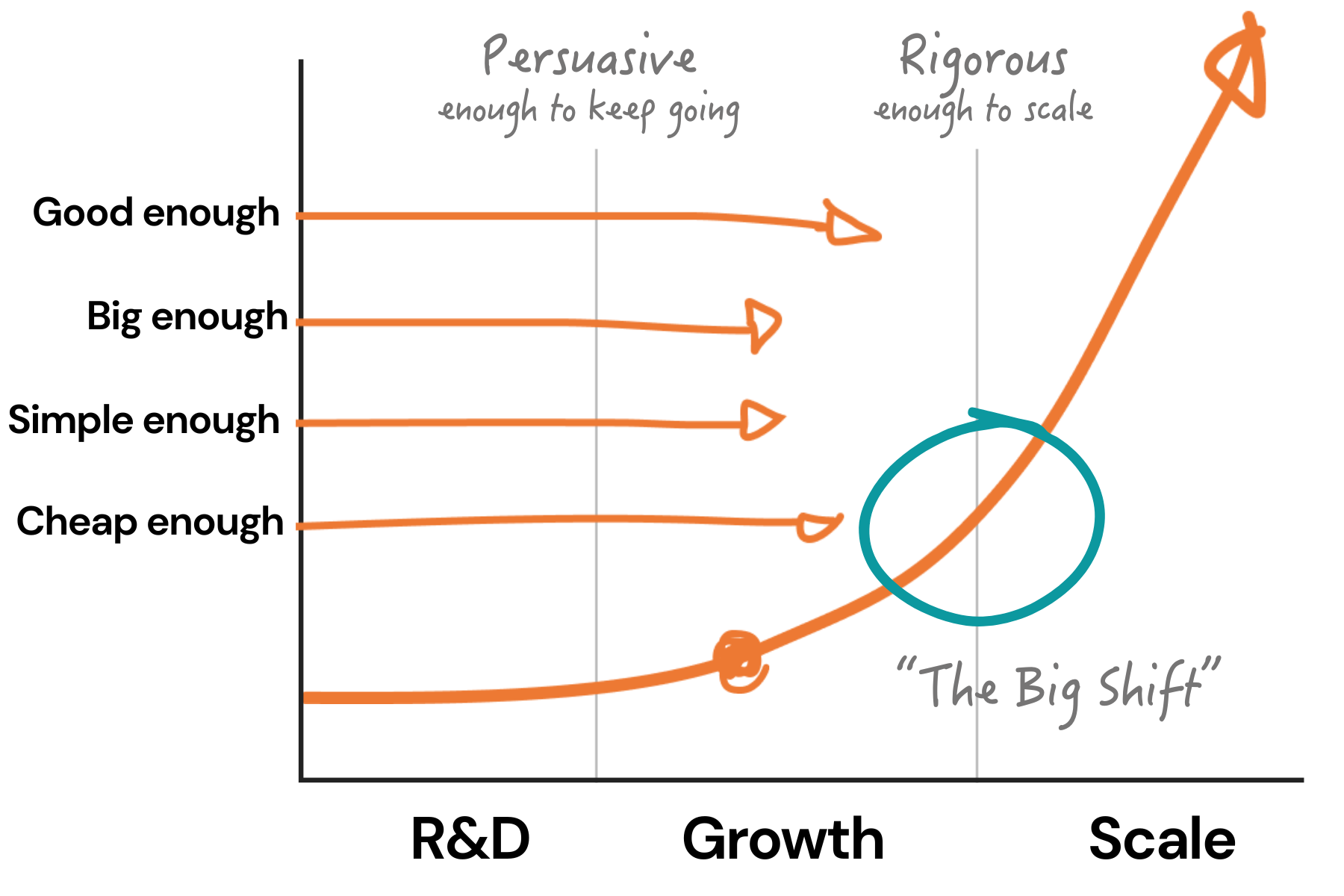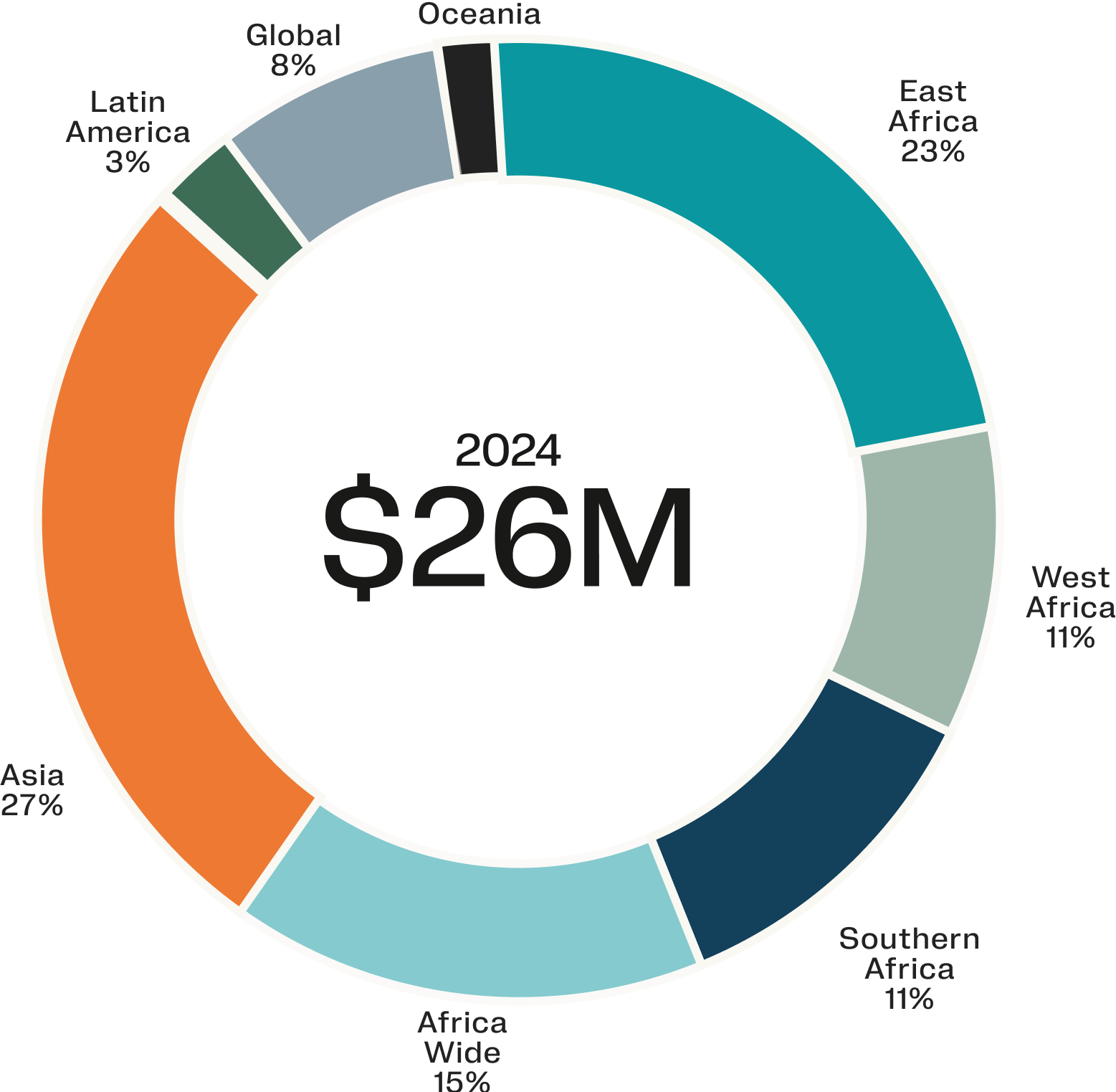What We Fund
.webp)
We work anywhere there is a big need and a strong team with a great idea.
We’ll fund anything that provides a better life for the poor and a route out of poverty. And is scalable.
We operate like a philanthropic venture fund where impact serves as an analog for profit. Every grant or investment we make is a bet on an organization’s potential for exponential impact over time. We get in when there’s a strong case to be made, and we get out when for whatever reason that potential has faded.
Most of what we do is focused on basic needs, like:
Perhaps the most basic need of the very poor is primary healthcare, which includes things like prenatal care, births in an equipped facility, vaccinations, malaria treatment, family planning, and last mile health access. To us, health rises or sinks with everything from road safety to mental wellbeing, from vaccine safety to sexual violence prevention.
Lots of people rely on agriculture as a source of income. We know what makes farms more productive and gets farmers more money: the right inputs, information, training, credit, and access to markets. Increasingly boosting income outside of agriculture is critical to make a dent in poverty levels.
We fund high-impact organizations to do what they do well. We back both for-profits and nonprofits: mostly grants, sometimes debt or equity if it fits.
Right now that's 77 portfolio organizations and 20 new fellows each year.
How We Decide
The basis of the bet
.avif)
A Mission
The mission describes what you’re setting out to accomplish—and brevity = clarity. We want it in eight words or less: a verb, a target place or population and —most important—an end outcome. If it doesn’t fit the mission, you shouldn’t do it.
An Idea
An idea is a theory, really, about to accomplish the mission. It’s what drives and shapes all that the organization does. We look for new innovations, or important variations on proven ones.
A Dream
For us, “dream” is a technical term, and a marker for ambition. It is what the world looks like if the idea goes big and it specifies the “doer and the payer at scale.” The key that unlocks exponential scale is the ability to recruit and enable others to it and pay for it.
A Scalable Model
An idea needs a model—a systemic, replicable set of activities that can be methodically scale-up. To get to exponential impact, a model must be:

Tracking Progress
This simple graphic has proven a remarkable tool to track progress. The dot is where we think they are on the journey to scale, and the arrows track their progress on the “enoughs.” The first line means “persuasive enough to keep going;” the second is “proven enough to scale.” Where the dots and arrows land is a shared judgement with us and them.
A Scale Strategy
Strategy here is entirely focused on what we call The Big Shift—the approach the organization will take to go from linear to exponential impact. It’s fundamentally about decoupling philanthropy and impact, and it is mostly concerned with the transition of growth to the doer and payer at scale. Tech, policy, and collective action can play important roles too.
The Organization
This is about whether, given their stage, we think the organization can deliver the model and strategy. It is a gestalt from deep knowledge of leadership, track record, finances, fundraising, iterative/learning ability, and governance.
How We Fund

Step One: Fellowship
We search for founders — mostly early stage — who have what we think is a big solution.
We recruit the best into our one-year Fellowship. We give them $100K and an intense year of learning bookended by two week-long retreats. We get to know them and their work really well.
Step Two: Portfolio
We continue funding organizations that we continue to think have a big solution.
When it turns out there’s a good fit—when we’re ready to make that bet—we add them to the Mulago funding portfolio (NB: The fellowship is the only route to the portfolio).
Once an organization has gone through the fellowship, we make a bet on whether to continue funding. Historically it looks like this...
263
Fellows over the years
~60%
Convert into our portfolio for longer term funding
~70%
Of those are still in the portfolio at five years.
77
Current organizations in our portfolio.
Our work with doers is a joint venture to achieve the Dream.
We’re not deluded about the inherent power asymmetries, but we do all we can to mitigate them while still doing our job. That means...
Unrestricted Funding
Unrestricted funding drives innovation and growth. It's the most useful for the organization and most leveraged for the donor. If we don't think an organization knows how to use the money better than we do, we don't give them any.
No Proposals
We don't take proposals. Proposals are a hassle for all concerned and rarely give us the information we need. We do our own homework and ask our own questions.
Minimal Hassle
The last thing we want is to waste the time and energy of those who are trying to save the world. We ask for annual milestones and their impact methodology; beyond that, we rely on documents they should already have on hand.
Long Term
We don't abandon a good thing after a couple of years. If we continue to see real impact and clear promise toward scale, we stay in the game for up to ten years+.
Close & Engaged
We visit our organizations, advise when we have something useful to say, connect them to other funders, meet up whenever we can, and talk often enough to avoid any surprises.
Funding Overview
We fund high-impact organizations to do what they do well. We back both for-profits and nonprofits: mostly grants, sometimes debt or equity if it fits.
Right now that's 77 portfolio organizations and 20 new fellows each year. Last year we put $26M behind them.

